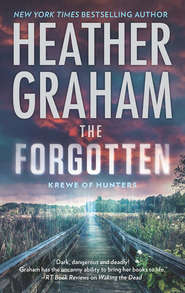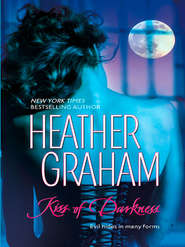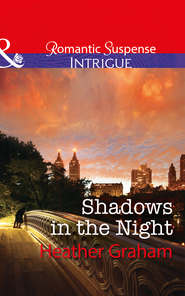По всем вопросам обращайтесь на: info@litportal.ru
(©) 2003-2024.
✖
Wicked Deeds
Настройки чтения
Размер шрифта
Высота строк
Поля
But for the moment...
“It was a dream, and rather a cool one. I was walking around Baltimore...”
“We’re in Baltimore, so that seems...normal, maybe?”
She grinned, rolling onto an elbow to better face him—he’d already gotten up and showered and dressed for the day. He was an early riser—alert and ready to face the world as soon as he opened his eyes.
Vickie...not so much! But she was getting used to early mornings.
“Perfectly normal,” she told him. “It wasn’t a nightmare. It was just a dream. About beautiful old Baltimore—hey, it’s an important city, right? And we are going to go and do some cool things today, aren’t we?”
“Absolutely,” he promised. “Fort McHenry, the Inner Harbor, Federal Hill—”
“Don’t forget the aquarium!” she said.
“I wouldn’t dream of it. But I thought we might want a full day for that. We can do whatever you choose, my love. Anything you would like.”
“You’ve done it all too many times before?” she asked him.
He laughed. “No. I mean, I have done it all before, but not with you, so it’s as if it’s the first time, right?”
“That is an incredibly good suck-up line if I have ever heard one!” she assured him.
She thought that the line might take them somewhere, but he smiled and stepped away from the bed.
“I just have a couple of hours of work first,” he said.
“What?”
“Work. But there’s not much involved at the moment, and not much I can do.” He added quietly, “Franklin Verne—you know who he is?”
“Yep. I’m living and breathing and have ears and eyes. You can’t miss him. What about him?”
“He died last night.”
“Oh, that’s too bad—terribly sad! I’ve seen him speak. I mean, I write nonfiction and he writes fiction, but I’ve been at a number of conferences where he’s been a speaker on a panel. He was charming and very funny...helpful, giving. He’s actually written some historical fiction, and while Verne tended toward horror—some action, some sci-fi and some mystery—he was a wonderful researcher as well.”
“Always the writer!” he teased.
“That’s not going to be a problem, is it?” She’d spoken with other agents and she believed that—assuming she did make it through the academy—she’d still be welcome to write on her own time. It seemed that Krewe agents were, in fact, encouraged to keep up with any previous pursuits.
“It’s fine!” he assured her quickly.
“So what happened to Franklin Verne? I know that he was ill a few years ago—in fact, he joked about it sometimes when he spoke, saying that his wife taught him how to have fun and not be totally boring without a dip in a whiskey vat.”
“Yes, I had heard that he was supposedly as clean as a newborn babe.”
“Supposedly?”
“He was found dead in a wine cellar.”
“In a wine cellar—he didn’t have a wine cellar. I don’t think he even drank wine. When he did drink.”
“Not his wine cellar. But how do you know he didn’t have a wine cellar?”
“He was very open about his health problems, about his wild days—and his love for his wife,” Vickie said. “So, if not his own wine cellar—where then?”
“The Black Bird.”
“What?”
“Amazing. That was my exact reaction when Jackson told me. Want to come with me? I’m on my way there now. Heading off to kowtow to a local cop named Carl Morris.”
Vickie rolled out of bed. “Ten minutes,” she told him.
He nodded; he knew she was telling the truth.
* * *
Vickie and Griffin had both thoroughly enjoyed the Black Bird the night before; the service had been wonderful and the food had been delicious.
Vickie had especially like the decor; the building was 1820s Federal style, and the restaurant had the first two floors and the basement of the building while the remaining three floors above were given over to office space. Upon entering a long hall of a foyer with exposed brick walls and plush red carpeting, you came to the hostess stand. From there it went through to the bar area.
The bar was lined with portraits of Poe and his family; there were framed posters of quotations and more, all having to do with Edgar Allan Poe.
Stairs led from behind the bar to several sections of seats and a few party rooms of various sizes. The main dining room was the first floor, and tables and booths were surrounded by bookshelves.
Of course, not even the master could have written enough to fill the restaurant’s shelves; it was an eclectic mix of secondhand novels. The venue had charmingly been planned on the concept that every diner was welcome to take a book, and, naturally, you were welcome to leave a book or books as well.
New editions of Poe books were sold in the gift shop, which was conveniently on the way out, at the back of the restaurant. Of course, one could leave through the front door, but the bookshop was like a minimuseum, and Vickie sincerely doubted that many people ignored it. Their waiter—he’d introduced himself as Jon—told them that though the restaurant was comparatively new, they attracted a lot of local, repeat clientele, for which they were very grateful. But locals didn’t tend to shop for souvenirs, unless they were entertaining out-of-town friends. Since they were happily playing tourist, Vickie and Griffin made sure to visit the shop. Lacey Shaw, the woman working the little boutique, was a bit of a Poe aficionado, and she assured them that even the locals loved to come in and chat.
And their waiter was also quite the enthusiast. “Seriously, poor Poe was much maligned in life, but most of the time, the people who wrote about him were seriously jealous competitors, so of course they tried to make him out to be nothing but a drunk with delusions of grandeur. In truth? He was brilliant. You do know that we credit him with the creation of the modern detective novel? ‘The Murders in the Rue Morgue’! What an imagination the man had!” Jon had told them, eyes bright with his admiration. He might be a waiter there, but he truly loved the works of the man and had studied his life.
“I promise you, we’ll not argue Poe’s brilliance,” Griffin had assured him.
Jon had gone on, “But people love the restaurant because of the library. It’s not a new idea but what a great one—bring a book, take a book! Or just take a book. Well, okay—buy a shiny new one in the gift shop, too. I love working here! Gary Frampton—the owner—is a wonderful man. I’m crazy about him. Alice—the lovely girl with the long blond hair who greeted you as a hostess tonight—is his daughter.”
It wasn’t “lovely Alice” who met them then, though, by light of the next day.
It was an officer in uniform.
Griffin produced his credentials, and the officer gruffly told him to go on downstairs to the wine cellar.
The stairs were brick, as old as the building, but well maintained. As they descended, the air got cooler. The cellar was climate controlled but obviously didn’t need much help. It was stone, deep in the ground near the harbor, and naturally protected from the heat of a mid-Atlantic summer.
A tall, slim man who somewhat reminded Vickie of Lurch from The Addams Family was standing quietly in the center of the main room. Crime-scene techs—easily identifiable by their jackets—were moving about, collecting what evidence could be found.
The body of Franklin Verne remained, giving Vickie a moment’s pause.











